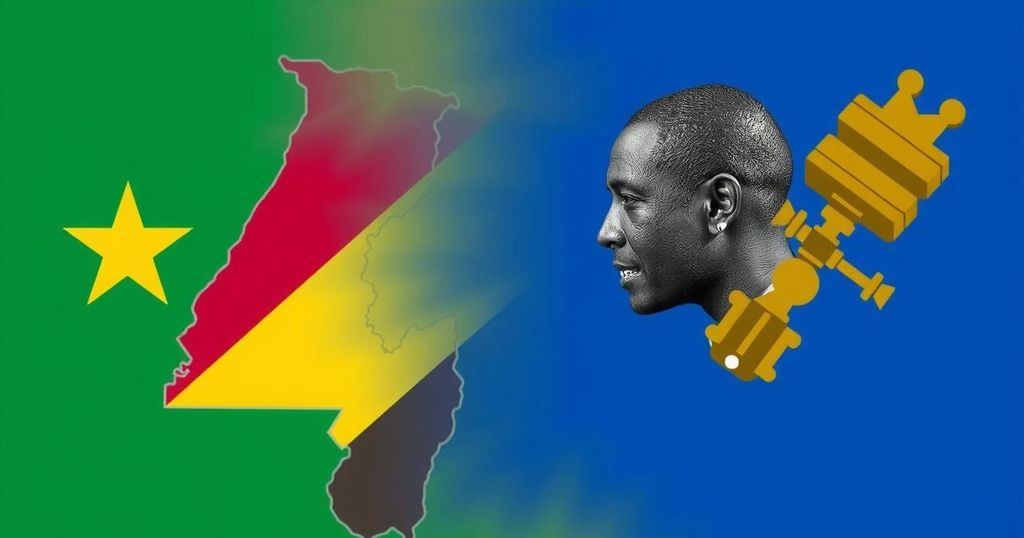Allegations of Interference: Zimbabwe’s Involvement in Regional Elections
Zanu-PF, Zimbabwe’s ruling party, is accused of interfering in electoral processes in Botswana, Namibia, and Mozambique. Allegations focus on its assistance to local parties during elections, participation via diaspora voting, and joint campaigning efforts. Former leaders and opposition figures emphasize these actions as threats to regional sovereignty. Zimbabwean officials deny allegations, asserting their non-interference stance while the accusations pose significant challenges for democratic governance in Southern Africa.
Zimbabwe’s ruling party, Zanu-PF, faces serious accusations of meddling in the electoral processes of its neighboring nations, particularly Botswana, Namibia, and Mozambique. As a prominent liberation movement still in power, Zanu-PF alleges a battle against neo-colonial influences in the Southern African region. These allegations intensify as Zanu-PF has reportedly assisted Mozambique’s Front for the Liberation of Mozambique (Frelimo) in its recent elections, with claims that members of the Zimbabwean party participated in the electoral process through diaspora voting systems. Moreover, Zanu-PF officials are accused of campaigning in Botswana alongside the ruling Botswana Democratic Party in preparation for the upcoming elections. Namibia’s opposition has raised alarms regarding the involvement of a South African firm linked to President Emmerson Mnangagwa in the printing of ballot papers for their forthcoming elections. Earlier this year, Zanu-PF held a significant conference with other regional liberation parties, asserting a collective desire to fend off perceived threats from historical colonial powers. While various parties attended, only the African National Congress refrained from supporting Zimbabwe in its contentious elections in August 2023. Notably, former President of Botswana Ian Khama has publicly criticized Zanu-PF’s interference, suggesting that Zimbabweans participating in Mozambique’s elections sets a dangerous precedent that could spill over into Botswana. Similarly, opposition leader Job Sikhala has urged regional powers to intervene against Zanu-PF’s alleged interference, which is perceived as a direct infringement upon the sovereignty of neighboring states. In a defense of Zimbabwe’s actions, government spokesman Nick Mangwana dismissed these accusations, emphasizing that Zimbabwe respects the democratic processes of its neighbors and does not dictate their governance. This ongoing issue highlights a growing tension within the Southern African Development Community (SADC), complicating regional politics and raising concerns over election integrity. With Zimbabwe currently chairing SADC, the implications of its actions are particularly significant as they navigate potential diplomatic disputes arising from perceived overreach in domestic electoral matters across the region.
The context surrounding Zanu-PF’s alleged electoral interference stems from its historical role as one of the last remaining liberation movements in power in Southern Africa. This party, which has maintained its grip on power since Zimbabwe’s independence, cites an ongoing struggle against neo-colonialism as a justification for its involvement in the political affairs of neighboring countries. Recent years have seen an increase in political unrest and allegations regarding the integrity of elections within the Southern African region. The opposition parties in Botswana, Namibia, and Mozambique are particularly vocal against Zanu-PF’s actions, fearing for their own electoral systems. The presence of a significant diaspora population from Mozambique in Zimbabwe adds a layer of complexity to the accusations of electoral manipulation, as the voting rights of these individuals are often intertwined with their home country’s political processes. This backdrop is critical in understanding the delicate balance of power in Southern Africa and the ongoing challenges facing democratic governance in these nations.
In conclusion, the allegations of Zimbabwe’s interference in neighboring elections reflect broader concerns regarding sovereignty and integrity within Southern Africa. With Zanu-PF’s participation in electoral processes in Mozambique and Botswana, fears of electoral manipulation are compounded by claims of supporting their regional allies. These developments pose significant implications not only for the internal politics of these nations but also for the collective stability and credibility of the Southern African Development Community. As Zimbabwe navigates its role as SADC chair amidst these tensions, the need for transparent and fair electoral practices becomes increasingly paramount.
Original Source: www.theeastafrican.co.ke




Post Comment